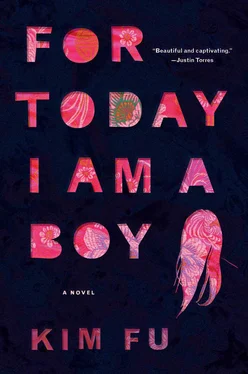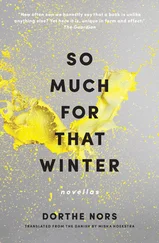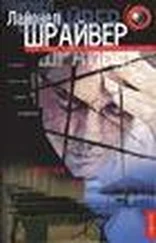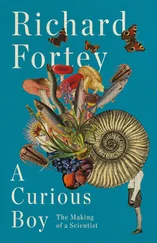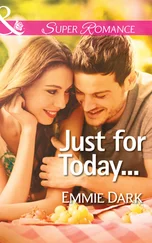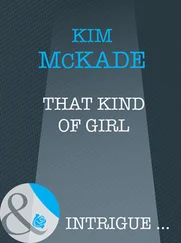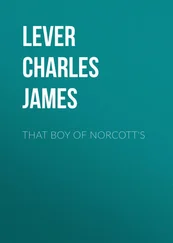“This is Audrey,” John said to some group of half-naked monsters, slits of flesh and bright colors under a strobe light. I saw Yellow among them. He’d dyed his hair pink, shaved off his eyebrows, and painted them back in to match the hair.
I bit my cigarette holder coquettishly. “Hell- o, ” I said. I added a melodic whistle to the name when I said it myself, the voice effortless. “My name is Audrey.”
I knew how to stand: hand on one hip, cigarette holder in the other. A boy in regular clothes and face paint leaned in so I could hear him. “Your ass looks great in that dress.”
Lights kept pulsing over us. I couldn’t see him clearly, just the butterfly painted over his entire face. “Thank you,” I said.
John grabbed my arm and started to drag me away, shouting directly into my ear, “Dance with me!” I looked back at the boy apologetically. He waved.
The music inside was different than outside — some grating, industrial chaos. We drifted to the edge of a slam-dancing crowd that jumped and fought, bodies crushing and bruising like fruit. John took a step away from me, stood stiffly upright, mock formal, and held out his hand. I took it, and he pulled me in, one hand on the small of my back, one hand still holding mine up in the air. My hand settled on his shoulder. He led a three-four step, ignoring the crashing music around us, and I stumbled to follow. The hand on my back guided me in, and my head rested on his chest, ignoring the shift of my wig. He held me as though my bones were made of glass, the way you would hold Audrey. The voice in my head whispered grimly, It’s Halloween, it’s just a game, it isn’t real, but I was too busy being spun, the room whirling along the hem of my gown, and John was Humphrey Bogart on an empty tennis court, and I didn’t care that William Holden would never come.
We walked south from Parc-Ex on avenue du Parc, a deceptively straight road, familiar downtown buildings visible when still hours away. The neighborhoods changed drastically as we went along: smashed-in laundromats, manicured lawns, bars and diners with names like Chez Gary, pretentious bistros, richer and poorer and richer again. Eileen and I walked at the front, arm in arm, and John followed with a small crowd. They were singing a song in French that I didn’t recognize. John’s accent was the worst but he sang the loudest.
Eileen and I had walked in silence most of the way. She reminded me of Helen, how she held her liquor with a straight back, how her thin frame seemed to be holding my weight.
“Faggots!”
I felt Eileen tug sharply in the direction of the voice. Two boys across the street, not in costume, about the same age as Eileen and John.
“What did you say?” Eileen yelled back.
“Let it go,” John said.
“I said, what did you say?” Eileen yelled, louder now.
I had immediately turned to the group to see who among us had prompted the shout. I’d blamed Pink and his eyebrows; I’d even thought that the boys somehow knew about John. But I was the man in the dress.
Without coming any closer, the boy called back, “I said you’re a bunch of faggots!”
“You got us there,” John said.
Someone in John’s group laughed. I kept watching Eileen, who pulled harder at the crook of my arm. “What are you going to do about it?” she shouted.
“Eileen,” Pink warned.
My shoulder jerked in its socket as Eileen tugged in their direction. “You going to come here and make something of it? There’s ten of us and two of you.”
“Eileen!”
She finally released my arm. “Come over here! You want to see what a bunch of faggots can do?”
John and Pink grabbed Eileen. John murmured her name. “Calm down.”
The boys were too far away for us to see their faces. They stayed where they were. “Fuck you,” the first one said. His voice was weaker than before.
Eileen struggled free. “Fuck you!” she answered. The boys turned and left, walking away at a normal pace. Eileen kept screaming, “Cowards! Assholes!” The one who hadn’t spoken glanced back at us, his face just a flash of white.
The next morning, I came in at six thirty like everyone else. I sang along with the radio as I prepped. Everyone looked pale and ill. One of the cooks snapped at me. “Would you shut up? I drank my weight in tequila last night.”
I’d hardly slept. Night had rolled giddily into morning. The makeup hadn’t washed away cleanly, and shadow and sparkle lingered around my eyes. Alcohol sweat dripped from my temples.
John walked in with a newspaper under his arm. His expression was grave. “You hear about Dana Jackson?” He put the paper down on my station.
“Eh! Not near the food!” shouted the sous-chef.
“It’s important,” John said.
The lead story was about how it had been an unusually difficult Halloween for police; more vandalism and violence than most years. John tapped his finger at the bottom right corner of the front page, at a photo caption.
“Dana” Jackson, née Daniel, dies after Halloween beating, p. 7
I heard John talking but couldn’t register what he was saying. Something about the quotation marks. A school portrait of a teenage boy in glasses, a little effete, sweet-looking, something his parents could explain away. And a grainy, blown-up photo taken at a party, a red-eyed flash, opaque eye shadow and puffy lips, a striped minidress, overstuffed high heels. The photos were stretched so that they fit, side by side, into one frame. An art director or a layout director — someone had made the choice to do that. People all over the city, opening the paper over their morning coffee, using their cereal bowls to pin it down, looking at the sideshow of “Dana,” née Daniel.
John flipped to page seven. He read aloud bits and pieces. Ten people outside a nightclub. Police believe two participated in the beating while another eight stood and watched. All could be charged as accomplices. Bartender saw them leave together, didn’t have the chance to check until hours later. Already dead.
“There’s a candlelight vigil tonight,” John said. When he shut the paper, clutching it closed, the front page faced me again. I stared into the red at the back of Dana’s eyes, blood caught in the flash.
“How could they have planned that already?” another cook asked.
“We’re organizing it,” John said.
I knelt down to the fridge under my station. “We still have a restaurant to open,” I said. I slammed a container of iceberg heads down onto the counter. As I chopped them into strips, the knife kept skidding on the board, making a conspicuous noise.
“So,” John said, “I’ll meet you at your place at eight, and we can walk over together?”
“What? For what?”
“The vigil.”
“I’m not going to that.”
I tried to ignore his surprise, his dogged faith. “Of course you are.”
“I don’t know this person.”
John continued to stand there, arms hanging down. The knife skidded so much I lost my grip and had to pick it up again. “It could’ve been you,” he said finally.
“No,” I said, chopping bluntly, breaking more than slicing the lettuce, “it couldn’t. I’ve worked my whole life so that it couldn’t be me.” White flash of a face. Where did they go, those boys, after they left us behind?
“Last night,” John began. He paused, still looking wounded. “You were so happy.”
I gathered the lettuce into a bin and held it against my stomach like a barrier. “If it had been me, it would’ve been your fault.”
John reeled as though I’d struck him. “You’re a coward,” he said. “You’ve worked your whole life because you’re a coward.”
“What do you know? What do you know about anything?” His family moved for him. The hormones. The surgery he was allowed to accept or reject. I waved my arm around the kitchen, at the stunned cooks watching us. “Nobody has to know about you! You can blend in whenever you want!”
Читать дальше
